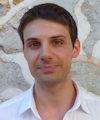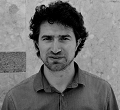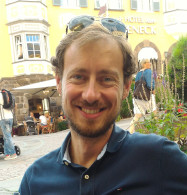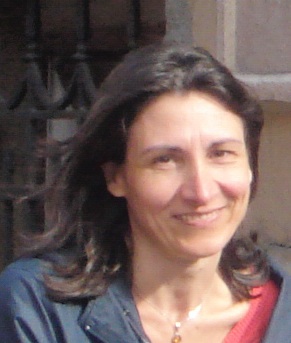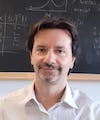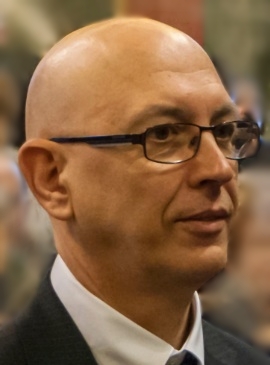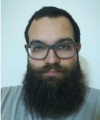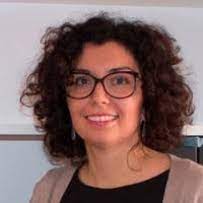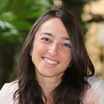Studying at the University of Verona
Here you can find information on the organisational aspects of the Programme, lecture timetables, learning activities and useful contact details for your time at the University, from enrolment to graduation.
Academic calendar
The academic calendar shows the deadlines and scheduled events that are relevant to students, teaching and technical-administrative staff of the University. Public holidays and University closures are also indicated. The academic year normally begins on 1 October each year and ends on 30 September of the following year.
Course calendar
The Academic Calendar sets out the degree programme lecture and exam timetables, as well as the relevant university closure dates..
| Period | From | To |
|---|---|---|
| Primo semestre | Oct 4, 2021 | Jan 28, 2022 |
| Secondo semestre | Mar 7, 2022 | Jun 10, 2022 |
| Session | From | To |
|---|---|---|
| Sessione invernale d'esame | Jan 31, 2022 | Mar 4, 2022 |
| Sessione estiva d'esame | Jun 13, 2022 | Jul 29, 2022 |
| Sessione autunnale d'esame | Sep 1, 2022 | Sep 30, 2022 |
| Session | From | To |
|---|---|---|
| Sessione Estiva | Jul 15, 2022 | Jul 15, 2022 |
| Sessione Autunnale | Oct 14, 2022 | Oct 14, 2022 |
| Sessione Invernale | Mar 14, 2023 | Mar 14, 2023 |
| Period | From | To |
|---|---|---|
| Festa di Tutti i Santi | Nov 1, 2021 | Nov 1, 2021 |
| Festa dell'Immacolata Concezione | Dec 8, 2021 | Dec 8, 2021 |
| Festività natalizie | Dec 24, 2021 | Jan 2, 2022 |
| Festa dell'Epifania | Jan 6, 2022 | Jan 7, 2022 |
| Festività pasquali | Apr 15, 2022 | Apr 19, 2022 |
| Festa della Liberazione | Apr 25, 2022 | Apr 25, 2022 |
| Festività Santo Patrono di Verona | May 21, 2022 | May 21, 2022 |
| Festa della Repubblica | Jun 2, 2022 | Jun 2, 2022 |
| Chiusura estiva | Aug 15, 2022 | Aug 20, 2022 |
Exam calendar
Exam dates and rounds are managed by the relevant Science and Engineering Teaching and Student Services Unit.
To view all the exam sessions available, please use the Exam dashboard on ESSE3.
If you forgot your login details or have problems logging in, please contact the relevant IT HelpDesk, or check the login details recovery web page.
Academic staff
 federico.busato@univr.it
federico.busato@univr.it
 mariano.ceccato@univr.it
mariano.ceccato@univr.it
 mila.dallapreda@univr.it
mila.dallapreda@univr.it
 giulio.mazzi@univr.it
giulio.mazzi@univr.it
 daniela.pianezzi@univr.it
daniela.pianezzi@univr.it
Study Plan
The Study Plan includes all modules, teaching and learning activities that each student will need to undertake during their time at the University.
Please select your Study Plan based on your enrollment year.
1° Year
2° Year activated in the A.Y. 2022/2023
| Modules | Credits | TAF | SSD |
|---|
| Modules | Credits | TAF | SSD |
|---|
| Modules | Credits | TAF | SSD |
|---|
4 modules among the following2 modules among the following3 modules among the followingLegend | Type of training activity (TTA)
TAF (Type of Educational Activity) All courses and activities are classified into different types of educational activities, indicated by a letter.
Logic in computer science (2021/2022)
Teaching code
4S008914
Teacher
Coordinator
Credits
6
Language
Italian
Scientific Disciplinary Sector (SSD)
INF/01 - INFORMATICS
Period
Secondo semestre dal Mar 7, 2022 al Jun 10, 2022.
Learning outcomes
The course aims to provide knowledge of classical and intuitionisitic logic (propositional and first order), and of lambda calculus and type theory. At the end of the course the students must demonstrate to have the necessary knowledge to reason within a formal logical system, both in a classical and intuitionisitic setting. This knowledge will allow the student to: i) carry out formal proofs with a deductive system; ii)reasoning with axiomatic systems. Moreover the students will have to know how to transfer the theoretical notions learned in logical contexts typical of computer science, such as the type systems for functional languages. Students will be able to continue their studies in the field of computer science logic.
Program
1.Propositional logic:
-propositions and connectives
-semantics
-natural deduction
-soundness and completeness
2. Predicate logics:
-quantifiers
-structures
-similarity types
-semantics
-identity
-natural deduction
-soundness and completeness
3. normalization in natural deduction.
4. confluence.
5. basic model theory
- equivalence,
- isomporphism.
6. lambda calculus without types and with types.
7. the sequent calculus and the cut elimination theorem.
8, peano Arithmetic
-first and second incompleteness theorems
Bibliography
Examination Methods
The exam consists of an oral seminar ( approximately 20/30 minutes).
Type D and Type F activities
Le attività formative di tipologia D sono a scelta dello studente, quelle di tipologia F sono ulteriori conoscenze utili all’inserimento nel mondo del lavoro (tirocini, competenze trasversali, project works, ecc.). In base al Regolamento Didattico del Corso, alcune attività possono essere scelte e inserite autonomamente a libretto, altre devono essere approvate da apposita commissione per verificarne la coerenza con il piano di studio. Le attività formative di tipologia D o F possono essere ricoperte dalle seguenti attività.
1. Insegnamenti impartiti presso l'Università di Verona
Comprendono gli insegnamenti sotto riportati e/o nel Catalogo degli insegnamenti (che può essere filtrato anche per lingua di erogazione tramite la Ricerca avanzata).
Modalità di inserimento a libretto: se l'insegnamento è compreso tra quelli sottoelencati, lo studente può inserirlo autonomamente durante il periodo in cui il piano di studi è aperto; in caso contrario, lo studente deve fare richiesta alla Segreteria, inviando a carriere.scienze@ateneo.univr.it il modulo nel periodo indicato.
2. Attestato o equipollenza linguistica CLA
Oltre a quelle richieste dal piano di studi, per gli immatricolati dall'A.A. 2021/2022 vengono riconosciute:
- Lingua inglese: vengono riconosciuti 3 CFU per ogni livello di competenza superiore a quello richiesto dal corso di studio (se non già riconosciuto nel ciclo di studi precedente).
- Altre lingue e italiano per stranieri: vengono riconosciuti 3 CFU per ogni livello di competenza a partire da A2 (se non già riconosciuto nel ciclo di studi precedente).
Tali cfu saranno riconosciuti, fino ad un massimo di 6 cfu complessivi, di tipologia F se il piano didattico lo consente, oppure di tipologia D. Ulteriori crediti a scelta per conoscenze linguistiche potranno essere riconosciuti solo se coerenti con il progetto formativo dello studente e se adeguatamente motivati.
Gli immatricolati fino all'A.A. 2020/2021 devono consultare le informazioni che si trovano qui.
Modalità di inserimento a libretto: richiedere l’attestato o l'equipollenza al CLA e inviarlo alla Segreteria Studenti - Carriere per l’inserimento dell’esame in carriera, tramite mail: carriere.scienze@ateneo.univr.it
3. Competenze trasversali
Scopri i percorsi formativi promossi dal TALC - Teaching and learning center dell'Ateneo, destinati agli studenti regolarmente iscritti all'anno accademico di erogazione del corso https://talc.univr.it/it/competenze-trasversali
Modalità di inserimento a libretto: non è previsto l'inserimento dell'insegnamento nel piano di studi. Solo in seguito all'ottenimento dell'Open Badge verranno automaticamente convalidati i CFU a libretto. La registrazione dei CFU in carriera non è istantanea, ma ci saranno da attendere dei tempi tecnici.
4. Periodo di stage/tirocinio
Oltre ai CFU previsti dal piano di studi (verificare attentamente quanto indicato sul Regolamento Didattico): qui informazioni su come attivare lo stage.
Insegnamenti e altre attività che si possono inserire autonomamente a libretto
| years | Modules | TAF | Teacher |
|---|---|---|---|
| 1° 2° | The fashion lab (1 ECTS) | D |
Caterina Fratea
(Coordinator)
|
| years | Modules | TAF | Teacher |
|---|---|---|---|
| 1° 2° | Data Analysis for Biomedical Sciences | D |
Gloria Menegaz
(Coordinator)
|
| 1° 2° | Introduction to Robotics for students of scientific courses. | D |
Paolo Fiorini
(Coordinator)
|
| 1° 2° | Matlab-Simulink programming | D |
Bogdan Mihai Maris
(Coordinator)
|
| years | Modules | TAF | Teacher |
|---|---|---|---|
| 1° 2° | The fashion lab (1 ECTS) | D |
Caterina Fratea
(Coordinator)
|
| years | Modules | TAF | Teacher |
|---|---|---|---|
| 1° 2° | Introduction to Robotics for students of scientific courses. | D |
Paolo Fiorini
(Coordinator)
|
| 1° 2° | Introduction to 3D printing | D |
Franco Fummi
(Coordinator)
|
| 1° 2° | HW components design on FPGA | D |
Franco Fummi
(Coordinator)
|
| 1° 2° | Rapid prototyping on Arduino | D |
Franco Fummi
(Coordinator)
|
| 1° 2° | Protection of intangible assets (SW and invention)between industrial law and copyright | D |
Roberto Giacobazzi
(Coordinator)
|
| years | Modules | TAF | Teacher |
|---|---|---|---|
| 1° 2° | Python programming language | D |
Giulio Mazzi
(Coordinator)
|
Career prospects
Module/Programme news
News for students
There you will find information, resources and services useful during your time at the University (Student’s exam record, your study plan on ESSE3, Distance Learning courses, university email account, office forms, administrative procedures, etc.). You can log into MyUnivr with your GIA login details: only in this way will you be able to receive notification of all the notices from your teachers and your secretariat via email and also via the Univr app.
Tutoring faculty members
Graduation
Deadlines and administrative fulfilments
For deadlines, administrative fulfilments and notices on graduation sessions, please refer to the Graduation Sessions - Science and Engineering service.
Need to activate a thesis internship
For thesis-related internships, it is not always necessary to activate an internship through the Internship Office. For further information, please consult the dedicated document, which can be found in the 'Documents' section of the Internships and work orientation - Science e Engineering service.
Final examination regulations
List of thesis proposals
Attendance modes and venues
As stated in the Teaching Regulations, attendance at the course of study is not mandatory.
Part-time enrolment is permitted. Find out more on the Part-time enrolment possibilities page.
The course's teaching activities take place in the Science and Engineering area, which consists of the buildings of Ca‘ Vignal 1, Ca’ Vignal 2, Ca' Vignal 3 and Piramide, located in the Borgo Roma campus.
Lectures are held in the classrooms of Ca‘ Vignal 1, Ca’ Vignal 2 and Ca' Vignal 3, while practical exercises take place in the teaching laboratories dedicated to the various activities.

 +39 045 802 7980
+39 045 802 7980

